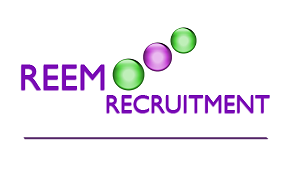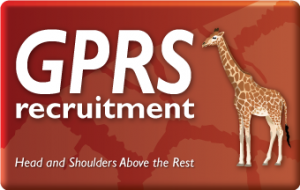This week concludes our three-part blog series: smart tips for interview success. Our third and final blog in the series focuses on what you can do AFTER your interview to position yourself for success.
In case you missed parts 1 and 2 in the series, you can link to them here:
Smart tips for interview success: Part 1 – Before the interview
Smart tips for interview success: Part 2 – At the interview
PART 3: AFTER THE INTERVIEW
How and when should candidates follow up after a job interview?
 “Ideally, make sure that you check with the interviewer when they will let you know. This will give you a good indicator of if and when you may need to follow up. 1 – 2 weeks after the interview is usually a good ball park figure. Personally I would prefer an email or letter as the method of correspondence. A phone call can catch an employer off guard or at a bad time, whereas an email or letter can be dealt with at their own convenience.”
“Ideally, make sure that you check with the interviewer when they will let you know. This will give you a good indicator of if and when you may need to follow up. 1 – 2 weeks after the interview is usually a good ball park figure. Personally I would prefer an email or letter as the method of correspondence. A phone call can catch an employer off guard or at a bad time, whereas an email or letter can be dealt with at their own convenience.”
Leo Woodhead, Careers Advisor. Contact via Twitter @thecareersblog
______________________________________________________________________________________
 “The follow up to the interview can vary depending on the format of the organisation. If arranged via an agency, the candidate should phone their contact after the interview confirming the interview has taken place and give honest and professional feedback on how they feel about the job and the interview. The agency will contact the company and have a similar conversation with the interviewer and should then feed this information back to the candidate.
“The follow up to the interview can vary depending on the format of the organisation. If arranged via an agency, the candidate should phone their contact after the interview confirming the interview has taken place and give honest and professional feedback on how they feel about the job and the interview. The agency will contact the company and have a similar conversation with the interviewer and should then feed this information back to the candidate.
Interviews that have taken place following a direct application are dependent on the information the interviewer has given the candidate. If they had said a timeframe for the interview process and getting back to candidates, then this should be respected.
If no time frame has been given, I would suggest around a week, before giving a follow up call to the company.
If a candidate learns they have been unsuccessful in landing the job, it is perfectly acceptable for them to make a follow up call or send an e-mail requesting feedback on their interview.”
Pamela Hopkinson, Jobs in Food Manufacturing. Contact via Twitter @JobsinFoodMfr
Does sending a ‘thank you’ letter give candidates an edge over their competitors?
 “Sending a well worded and friendly ‘thank you’ letter can help to remind an interviewer of who you are. They might even have a closer look at your CV or have a little look over their interview notes again. All this puts you at the forefront of their mind and helps you to stand out from the crowd. If it’s well received it can help to show you’re professional side. Employers need professionals that can help their business run smoothly. Making that extra effort shows that you know how to communicate in a business setting and that can make a real difference when it comes to their final decision!”
“Sending a well worded and friendly ‘thank you’ letter can help to remind an interviewer of who you are. They might even have a closer look at your CV or have a little look over their interview notes again. All this puts you at the forefront of their mind and helps you to stand out from the crowd. If it’s well received it can help to show you’re professional side. Employers need professionals that can help their business run smoothly. Making that extra effort shows that you know how to communicate in a business setting and that can make a real difference when it comes to their final decision!”
Leo Woodhead, Careers Advisor. Contact via Twitter @thecareersblog
Don’t call us, we’ll call you. How long should a candidate leave it before following up after an interview?
 “If you have the interviewer’s email address I think it is always a nice touch to email them after the interview to thank them for their time and to confirm that you are still very interested in the role. Keep your email short but sweet, there is no need to go over every point from the interview. If you haven’t received any feedback within three to four days I would recommend calling to see if there is any further progress with your application.”
“If you have the interviewer’s email address I think it is always a nice touch to email them after the interview to thank them for their time and to confirm that you are still very interested in the role. Keep your email short but sweet, there is no need to go over every point from the interview. If you haven’t received any feedback within three to four days I would recommend calling to see if there is any further progress with your application.”
Vicky Pachner, Director, Reem Recruitment. Contact via Facebook.
What is a reasonable timeframe for a candidate to take to consider a job offer?
 “This is very much dependent on how you came across the vacancy. If this was your dream job; and you worked hard to secure the interview opportunity, it shouldn’t take you very long at all to decide whether you want to take the job or not.
“This is very much dependent on how you came across the vacancy. If this was your dream job; and you worked hard to secure the interview opportunity, it shouldn’t take you very long at all to decide whether you want to take the job or not.
If the role involves wider changes (e.g. a relocation, or extensive travel) to your lifestyle, you may need to have a conversation about it with your family.
However, this information is unlikely to surface for the first time at interview, and very likely to have been talked about in principle at an earlier stage in the process.
Ultimately, you shouldn’t take too long. If you’ve followed our earlier advice about never walking out of the door scratching your head, you should be able to reliably follow your ‘gut’ instinct. Never make the mistake of assuming you’re the only option on the table (you’re NEVER the only option, and you can rest assured they’ll be keeping other candidates warm in the meantime) so give yourself a maximum thinking time of 24 hours before responding with your answer. A night to sleep on it usually brings a huge deal of clarity anyway.”
Tim Burns, Managing Director, GPRS Recruitment. Contact via Twitter @gprsrecruitment
What kind of references should a candidate to be ready to provide?
 “You should be able to provide at least five years of employment references, if you are a graduate, and haven’t been working for that long, then provide personal references. These should be given by tutors or professionals you have a strong association with, not family or friends. It doesn’t matter if your professional references aren’t in the same field as the jobs you may be applying for. They are there to guide prospective employers on your working capabilities including timekeeping, ability to handle pressure and performance.”
“You should be able to provide at least five years of employment references, if you are a graduate, and haven’t been working for that long, then provide personal references. These should be given by tutors or professionals you have a strong association with, not family or friends. It doesn’t matter if your professional references aren’t in the same field as the jobs you may be applying for. They are there to guide prospective employers on your working capabilities including timekeeping, ability to handle pressure and performance.”

